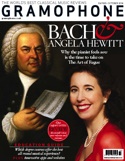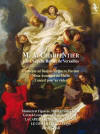Texte paru dans: / Appeared in: |
|
|
Reviewer:
Julie
Anne Sadie A treasure map is needed to find one’s way through this release. The CDs and DVD, exquisitely encased in a beautiful book – full of facsimiles, photographs and essays as well as vocal texts in innumerable translations – contain performances of some of the most beautifully crafted, deeply spiritual music Charpentier ever wrote.
Catherine Cessac, the foremost French authority on Charpentier, writes eloquently on the music and Savall on the impetus for the collection. The repertoire, inspired by the story of the Virgin Mary, is drawn from all periods of Charpentier’s life and reflects the different private and public circumstances of his employment, the musical resources available to him and occasions for which he composed. In several cases more than one performance, each with different personnel, has been included, hence the need for a map.
In 1988 Jordi Savall and his wife Montserrat Figueras were invited to prepare a programme of religious music by Charpentier for a performance in the Royal Chapel at Versailles, prompting them to found Le Concert des Nations. Disc 1 is a reissue of their first recording, made in Paris for Pierre Verany in 1989, of the music performed at Versailles.
In 2004 they were again invited to perform at Versailles as part of the Journées Marc-Antoine Charpentier. Disc 2 contains both excerpts of the recording – the Missa Assumpta est Maria and the arrangement for viols and continuo of Nuit – made on that occasion and one of Charpentier’s Concerts pour quatre parties de violes made in in Cardona in 2013. The entire Versailles performance was also filmed, hence the DVD. What is most unusual about this release is the multiplicity of performances of the same works and the significance we are invited to attach to them. Three of the works on disc 1 – the Canticum ad Beatam Virginem Mariam, the Stabat mater and Litanies de la Vierge – are performed by different generations of musicians (with the notable exception of Savall). In the 2004 versions, Arianna Savall takes her mother’s place as the principal soprano and does so with grace and distinction. The later addition of the Concert serves both to complement Nuit and fill out disc 2.
The performances are all carefully honed and representative of Savall’s wider approach to historical music, which is to create versions possibly even more beautiful than originally envisaged. This has led him to take occasional calculated liberties with the instrumentation, in this case the liberal use of double bass, an instrument not known in France until the last five years of Charpentier’s life. Nevertheless, Charpentier – and we – are the beneficiaries. |
|
|
|
|
|
Cliquez l'un ou l'autre
bouton pour découvrir bien d'autres critiques de CD |
|




